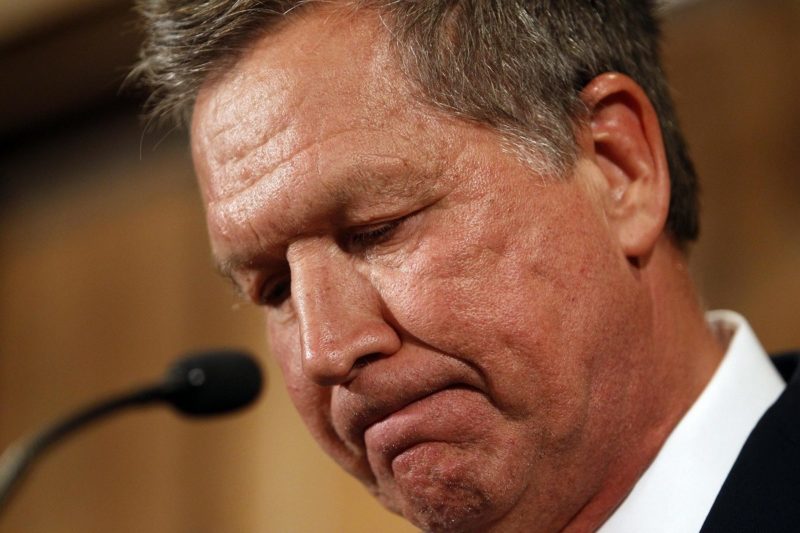Judge Thwarts Ohio GOP’s Attack on Planned Parenthood Funding
“This law would have been especially burdensome to communities of color and people with low income who already often have the least access to care—this law would have made a bad situation worse,” said Iris E. Harvey, president and CEO of Planned Parenthood of Greater Ohio.

An effort to defund Ohio Planned Parenthood affiliates by Gov. John Kasich (R) and the Republican-held legislature has come to an end.
Judge Michael R. Barrett of the U.S. District Court of the Southern District of Ohio on Friday ruled in Planned Parenthood’s favor, granting a permanent injunction on an anti-choice state law.
The court ruling will keep Richard Hodges, the Ohio Department of Health director, from enforcing HB 294.
The 2015 law, sponsored by Rep. Bill Patmon (D-Cleveland) and Rep. Margaret Conditt (R-Butler County), would have redirected $1.3 million in state and federal taxpayer funds from Planned Parenthood’s 28 clinics in Ohio.
The law would have required the state department to keep federal funds and materials that the health department receives from being distributed to entities that perform or promote non-therapeutic abortions, or maintain affiliation with any entity that does.
Funding that would’ve been cut off from the state health department went to the Violence Against Women and Breast and Cervical Cancer Mortality Prevention acts, the Infertility Prevention Project, Minority HIV/AIDS and Infant Mortality Reduction initiatives, and the Personal Responsibility Education Program.
Planned Parenthood in a lawsuit argued that the Republican legislation violated the First Amendment and the Due Process Clause and Equal Protection Clause of the 14th Amendment.
Barrett had temporarily blocked the law after Planned Parenthood affiliates filed the lawsuit and requested a preliminary injunction. The judge had issued an opinion contending that some legislators passed the law to make it difficult for people to access abortion care, as Rewire reported.
Iris E. Harvey, president and CEO of Planned Parenthood of Greater Ohio, praised the judge’s temporary order.
“This law would have been especially burdensome to communities of color and people with low income who already often have the least access to care—this law would have made a bad situation worse,” Harvey said in a statement.
Kellie Copeland, NARAL Pro Choice Ohio’s executive director, said in a statement that the Ohio legislature passed the anti-choice measure in an effort to appeal to conservative voters in early primary states during Kasich’s presidential campaign.
Copeland said that while the legislation made no effort to reduce the number of abortions performed, “it actively blocked critical health care for low-income women and families.”
Planned Parenthood said those services included 70,000 free STD screenings, thousands of HIV tests for at-risk community residents, and the largest infant mortality prevention program in the state.
In the 23-page court order and opinion, Barrett, an appointee of President George W. Bush, acknowledged that the law would have deterred “patients from seeking these potentially life-saving services.”
Planned Parenthood noted that the recent ruling in Ohio makes it among the ten states where courts have blocked anti-choice laws following June’s landmark Whole Woman’s Health v. Hellerstedt U.S. Supreme Court ruling.
